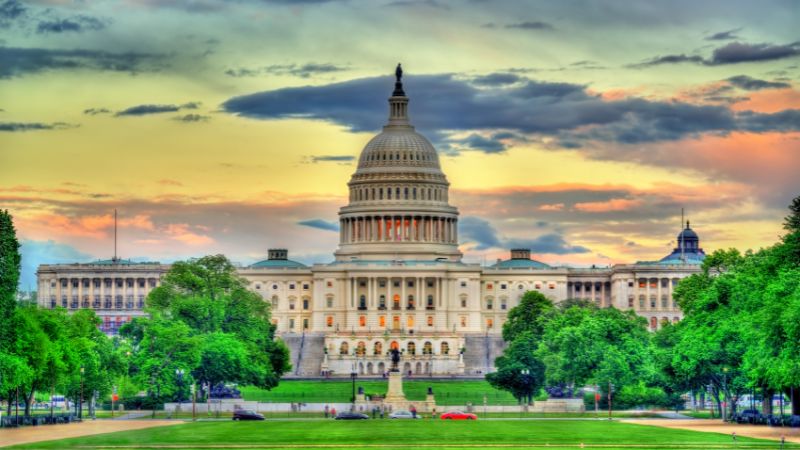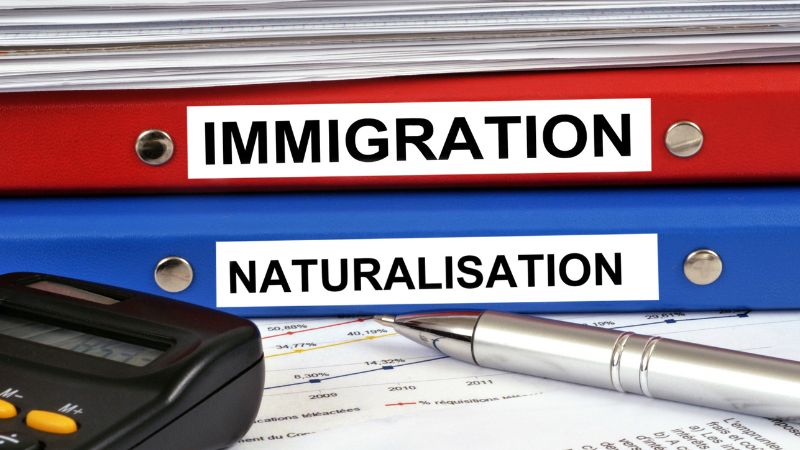Are you a foreign national with exceptional talents? The EB-1A visa could be your way to a green card in the United States. This visa is for people with outstanding skills in sciences, arts, education, business, or athletics.
The USCIS gives this visa to those who have earned fame in their field. You don’t need a job or labor certification to apply. This makes the EB-1A visa a special chance for self-petitioners.
To qualify, you must meet at least three of ten criteria set by USCIS. These include major awards, being in professional publications, or making big contributions to your field. A Nobel Prize win can be enough by itself.
Your skills must greatly benefit the United States. There’s no strict rule on what “substantial” means. USCIS officers will look at how your work affects the nation. They’ll use a two-step process to check your evidence, focusing on both rules and overall worth.
Are you ready to start your EB-1A journey? Let’s explore what it takes to show your extraordinary skills and get your U.S. green card. And if you choose to self petition, just contact us. We will help you in writing reference and cover letters. These testimonials and case studies demonstrate our excellence.
Understanding EB1A Visa Classification
The EB1A visa is a top choice for employment-based immigration. It’s for people with extraordinary skills in sciences, arts, education, business, or athletics. This visa has special benefits and tough rules.
Defining Extraordinary Ability
For EB1A, extraordinary ability means you’re a top performer in your field. You must have gained widespread fame through major achievements. This could be groundbreaking research, famous art, or leading a successful business.
Eligibility Criteria for EB1A
To qualify, you must meet at least three of ten USCIS criteria. These include big awards, being in top groups, having your work published, and making new discoveries. People like top professors and researchers, or high-level business leaders, often fit this category.
Benefits of EB1A Classification
The EB1A visa has many perks. You can apply on your own without an employer’s help. You don’t need labor certification, which makes the process quicker. You also get priority processing, which could lead to a fast decision in just 15 days. This makes the EB1A great for those at the top of their careers who want a quick way to get U.S. residency.
Key Requirements for EB1A USCIS Petitions
The EB1A visa is for people with extraordinary skills in their field. You must file Form I-140 with USCIS and meet certain criteria. Your petition should show you have gained national or international fame in your area.
To qualify, you need to have received major awards or meet three out of ten requirements. These include making original contributions, having your work published, or earning a high salary. USCIS looks at all the evidence to see if you’re among the best in your field.
Your petition must show you plan to keep working in your field. It’s important to prove your work will greatly benefit the U.S. EB1A is unique because you can apply on your own, without needing an employer to sponsor you.
When applying for adjustment of status, make a strong case. Talk about your achievements, awards, and recognition. Remember, your priority date is set when USCIS gets your Form I-140. This date is key for your place in line for a visa.
Demonstrating Sustained National or International Acclaim
To get an EB1A visa, you must prove you’re a big name in your field. This can be through a major achievement or by meeting certain criteria. Your work should stand out as a leader in your area.
One-Time Achievement: Major International Awards
Winning a top award can speed up your EB1A visa process. Prizes like the Nobel Peace Prize or Grammy highlight your big impact. These awards prove you’re a standout in your field.
Meeting at Least Three of the Ten Regulatory Criteria
If you didn’t win a big award, you can still apply by meeting three criteria. This includes getting smaller prizes, being in top groups, and having articles about your work. Other ways to qualify are judging others’ work, making new contributions, writing scholarly articles, and earning a high salary.
Comparable Evidence in Exceptional Cases
Sometimes, the usual criteria don’t fit your job. USCIS lets you submit other evidence. This is great for unique professions. For instance, a pro golfer from Zimbabwe got an EB1A green card for their skills in a golf-loving country.
Crafting a Compelling I-140 Petition
Creating a strong petition for an alien worker is crucial for EB1A success. Your immigration attorney is key in making a case that shows your amazing skills.
Essential Components of Your Application
Your I-140 petition must have a detailed resume that lists your big wins. Collect affidavits from experts and proof of national or international awards. Also, include your published work and any groups you’re part of.
Strategies for a Persuasive Narrative
Build a story that links your special skills to your big impact. Your immigration attorney can help match your evidence with legal standards. Remember, USCIS looks at many petitions every day, so make sure your achievements shine.
Supporting Documentation and Evidence
Collect strong documents like patents, publications, and peer reviews. It’s important to have proof of your published work and any awards. The AAO looks for detailed documentation to prove you’re credible. Be ready for a Request for Evidence (RFE) by having more proof.
Navigating the EB1A USCIS Process
The EB1A USCIS process can be complex, but you can succeed with the right approach. Start by filing Form I-140, which you can speed up with premium processing. This fast track guarantees a review within 15 calendar days. However, it costs an extra $2,500 on top of the standard $700 I-140 fee.
Once approved, you’ll either adjust your status if you’re in the U.S. or go through consular processing if you’re abroad. The time it takes varies a lot, from 4-6 months to 3-4 years. This depends on how well your job fits the EB-1A criteria. It’s important to prepare a strong application, which can take a lot of time. For example, one applicant spent about 1.5 years getting ready before getting final approval.
To make your petition stronger, try to meet at least three of the ten USCIS criteria for EB-1A. Some applicants aim for five or more criteria, rating their chances of approval as low, medium, or high. Focus on showing you earn a high salary, have a critical role in a top organization, and judge the work of others. Always check the USCIS Policy Manual for more guidance and think about getting help from an immigration lawyer to make it through this tough process.
The last step might include an interview. Even though the process is tough, recent data looks promising. In fiscal year 2023, USCIS and DOS handled over 147,000 employment-based adjustment of status applications. They expect to process about 161,000 in fiscal year 2024. These numbers suggest a higher approval rate than before the pandemic, giving hope to people like you who want this special visa.

FAQs
What is the EB-1 visa and who is eligible for it?
The EB-1 visa, also known as the first preference employment-based immigrant visa, is designed for individuals with extraordinary ability in the sciences, arts, education, business, or athletics, outstanding professors and researchers, and certain multinational executives and managers.
What types of evidence are needed for an EB-1 visa application?
To qualify for an EB-1 visa, you must provide evidence showcasing extraordinary ability, such as documentation of receipt of lesser nationally or internationally recognized awards, published material in major media, and proof of membership in associations that demand outstanding achievement from their members.
How is the processing time for an EB-1 visa determined?
The processing time for an EB-1 visa can vary depending on factors such as the service center handling the case and the petitioner’s ability to provide complete and accurate information. The USCIS Policy Manual and secure websites may provide updates on current processing times.
What is the significance of the Visa Bulletin for EB-1 applicants?
The Visa Bulletin, published by the Department of State, provides information on the availability of immigrant visa numbers. It includes final action dates and dates for filing, which are critical for EB-1 applicants to determine when they can proceed with their cases.
Can EB-1 visa holders adjust their status within the U.S.?
Yes, EB-1 visa holders who are already in the U.S. in a valid nonimmigrant status can apply for adjustment of status to become lawful permanent residents, provided they meet all the eligibility criteria.
Is a labor certification required for an EB-1 visa?
No, a labor certification is not required for an EB-1 visa. Unlike other employment-based visas, the EB-1 category does not require employer sponsorship and the associated labor certification process.
What are the filing requirements for an EB-1 visa petition?
To file an EB-1 visa petition, the petitioner must submit USCIS Form I-140, Petition for Alien Worker, along with evidence supporting the claim of extraordinary ability or outstanding achievement. Secure websites and the USCIS Policy Manual provide detailed filing instructions.
Who qualifies as an outstanding professor or researcher under the EB-1 visa category?
An individual qualifies as an outstanding professor or researcher under the EB-1 visa if they have at least three years of experience in teaching or research in their academic field, and they are internationally recognized for their outstanding achievements in that field.
Can an EB-1 petitioner share sensitive information in their application?
Yes, an EB-1 petitioner may use sensitive information to demonstrate their qualifications, but it should be done securely. The USCIS encourages using secure websites and gov websites for submitting applications to protect sensitive data.
What happens if the EB-1 criteria do not readily apply to my achievements?
If the criteria for the EB-1 visa do not readily apply to your achievements, you may provide comparable evidence to prove extraordinary ability. USCIS allows flexibility in presenting types of evidence to meet the eligibility requirements.

